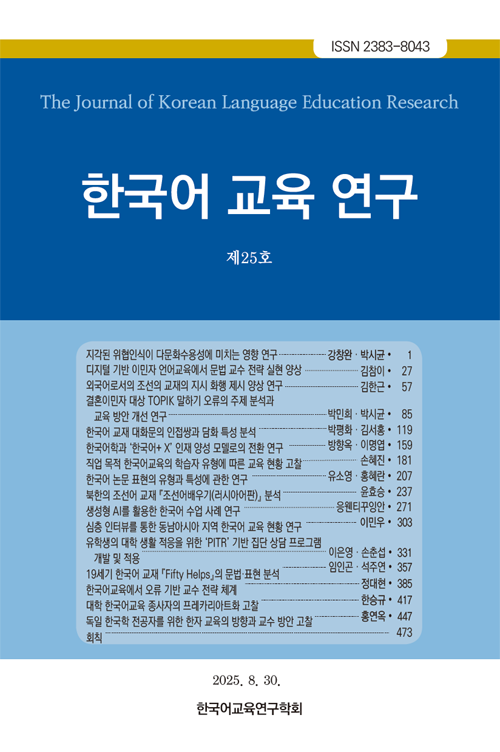본 연구는 대학 한국어교육 종사자들의 현실을 ‘프레카리아트(precariat)’ 개념을 통해 분석하였다. 지방 사립대학을 중심으로 한국어 강사와 비정년트랙 교수들은 단기 계약, 낮은 보수, 제도적 소외 등 구조적 불안정성에 처해 있으며 이는 직업 정체성의 혼란과 과잉노동, 전문성 제약으로 이어지고 있다. 반구조화 면담을 통해 도출된 다섯 가지 범주인 제도적 불안정성, 교육의 상품화, 정체성 단절, 과잉 노동과 감정 관리, 경력과 전문성의 제약은 한국어교육 종사자들이 구조적 취약 계층에 위치하고 있음을 보여준다. 이에 따라 고등교육의 공공성을 회복하기 위한 제도 개선과 정책적 대응이 요구된다.
This study analyzes the reality of university Korean language education workers through the concept of the precariat. Focusing on private universities in regional areas, Korean language instructors and non-tenure track professors are exposed to structural insecurity, including short-term contracts, low wages, and institutional marginalization. These conditions lead to confusion in professional identity, overwork, and constraints on professional development. Based on semi-structured interviews, five categories were identified: institutional instability, commodification of education, identity disruption, overwork and emotional labor, and limitations in career and expertise. These findings reveal that Korean language educators occupy a structurally vulnerable position. Accordingly, institutional reform and policy measures are needed to restore the public value of higher education.
1. 서론
2. 개념 정의 및 선행 연구 검토
3. 연구 방법
4. 한국어교육 종사자의 프레카리아트적 노동 현실
5. 제언 및 결론
참고문헌
(0)
(0)
